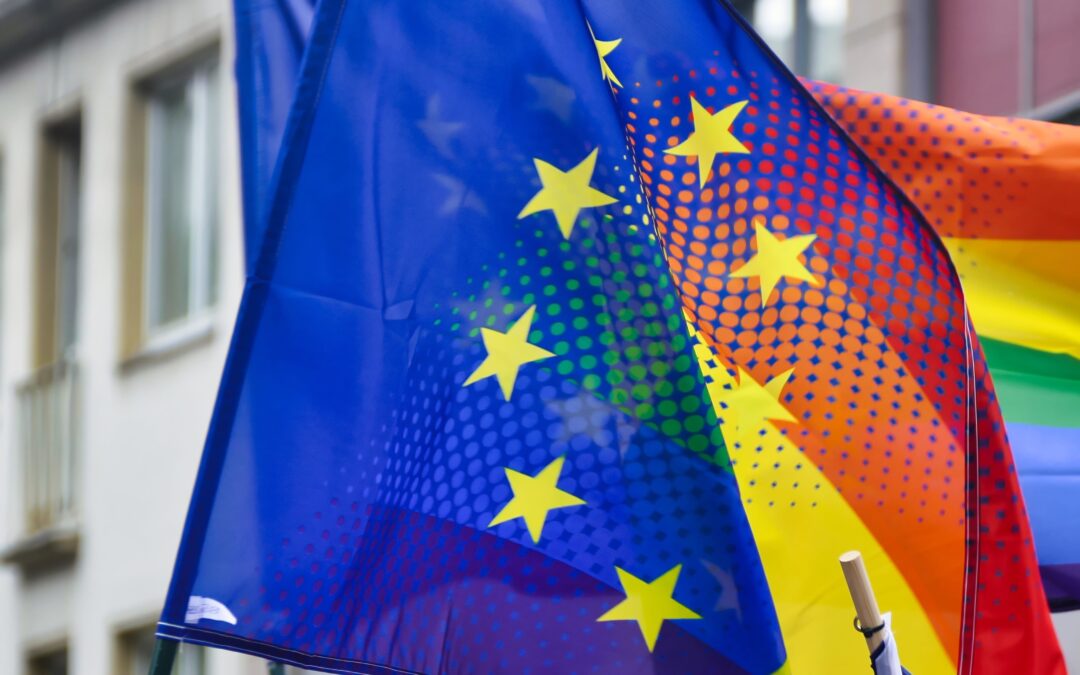Poland today vetoed a set of conclusions on the safety of LGBT people in the European Union, arguing that the EU is “privileging homosexuals” while allowing the rights of Christians and other groups to be violated.
During the same session of the European Council, the Polish government also opposed an EU directive on combating violence against women because of its use of the term “gender”.
Zgodnie ze stanowiskiem min. @ZiobroPL podczas dzisiejszej Rady UE w imieniu 🇵🇱 zgłosiłem veto w sprawie konkluzji w sprawie ochrony środowisk LGBT. Środowiska te nie są dykryminowane, lecz celebrowane w UE, nie ma potrzeby by przyjmować tego rodzaju dokumenty.
W poprzednim… https://t.co/k2hqEfXWSO
— Sebastian Kaleta (@sjkaleta) June 9, 2023
At the session of the justice and home affairs council, EU member states were asked to approve a set of conclusions based on an EU-wide survey on the situation of LGBT people that showed there had been “little overall progress and, in some respects, a potentially deteriorating situation”.
The conclusions would have committed the signatories to “promote and support the fundamental right of all persons within the EU, including LGBTI persons, to be safe from violence, harassment and discrimination”.
However, this afternoon justice minister Zbigniew Ziobro announced that Poland would be vetoing the text, which required the unanimous approval of all member states. Hungary was also opposed.
“In the shadow of the struggle for privileges for homosexuals and other LGBT people, religious hatred is spreading in the EU – the rights of Christians are widely violated in Europe today” he tweeted. “That is why in Pride Month I decided to veto the conclusions.”
Poland remains the EU's worst country for LGBT people, according to the annual Rainbow Europe ranking https://t.co/j83yAOtrcT
— Notes from Poland 🇵🇱 (@notesfrompoland) May 11, 2023
In a statement released by the justice minister, it said that Sweden, which holds the current rotating presidency of the European Council, had ignored Poland’s request for “postulates regarding the need to protect other minorities, including [religious] believers and people with disabilities”.
“All victims of crime should be treated with the same respect,” said deputy justice minister Sebastian Kaleta, who was representing Poland at the council meeting. “Indicating [only] one social group is contrary to equality before the law and combating discrimination.”
“Brussels wants to be blind to the victims of discrimination against believers,” added Ziobro. “They want to forcefully impose – under the banner of tolerance and equality – privileges for LGBTQ communities…[Poland] must have the courage to defend its own identity, heritage and values.”
In recent years, Poland’s government has led a vociferous campaign against what it calls “LGBT ideology”, which it presents as a dangerous set of ideas imported from the West that threaten Poland’s culture, religion, identity and even the nation itself.
Meanwhile, at the same European Council meeting today discussions were also held on a draft directive regarding combating violence against women and domestic violence. The measures aim to build upon the Istanbul Convention, a Council of Europe treaty on the same subject.
However, the Polish government – which has previously suggested it may withdraw Poland from the Istanbul Convention because it “promotes LGBT” – expressed opposition to the draft directive.
It criticised the text’s use of the term “gender”, which Poland says lacks a clear definition in EU law. That issue has in the past often led Poland to oppose EU documents that use the term “gender”.
Poland vetoed a common EU position on artificial intelligence because it mentioned "gender equality".
"The meaning of ‘gender’ is unclear," says a Polish diplomat
Poland was the only country to vote against it, but adoption required unanimity. More here: https://t.co/twhwXjr837 pic.twitter.com/GvLkLtXfh6
— Daniel Tilles (@danieltilles1) October 26, 2020
“The anti-violence directive would criminalise people who question that there are 50 or 200 genders,” claimed Kaleta, without providing evidence.
He also argued that Poland already has “the highest standard of protection for victims” of violence against women and domestic violence. In 2021, the Council of Europe praised measures taken by Poland on this issue. Police data suggest that incidents of domestic violence have been falling in Poland since 2014.
Approval for the draft directive required only the support of a qualified majority of states, rather than unanimity, so the measures were approved despite Poland’s opposition. But Kaleta pledged that the government would “seek to undermine this instrument through national solutions resulting from the [Polish] constitution”.
Poland has introduced new rules broadening the definition of domestic violence and expanding measures to support victims and deal with perpetrators.
The legislation, signed by the president yesterday, was supported by every party apart from the far right https://t.co/hsKOrbhesp
— Notes from Poland 🇵🇱 (@notesfrompoland) March 17, 2023

Daniel Tilles is editor-in-chief of Notes from Poland. He has written on Polish affairs for a wide range of publications, including Foreign Policy, POLITICO Europe, EUobserver and Dziennik Gazeta Prawna.




















